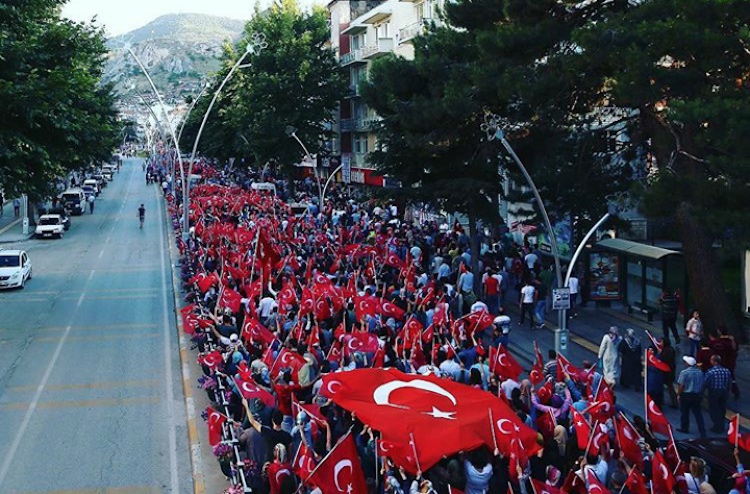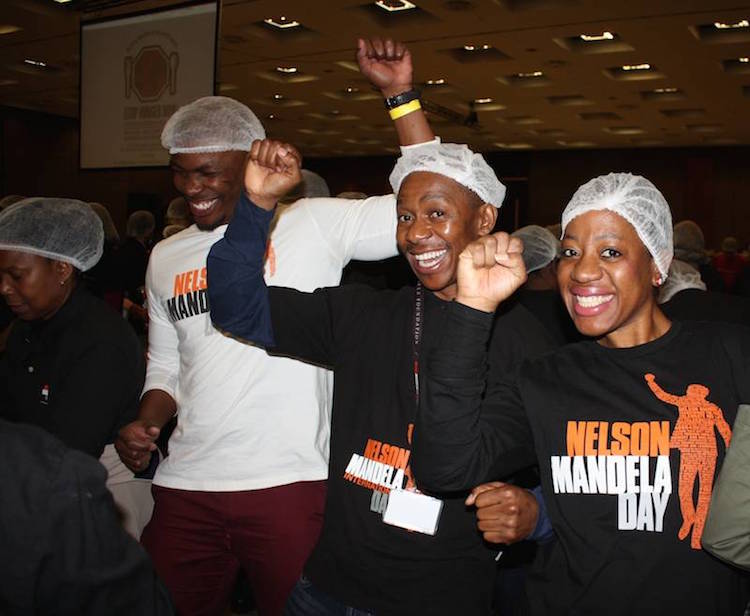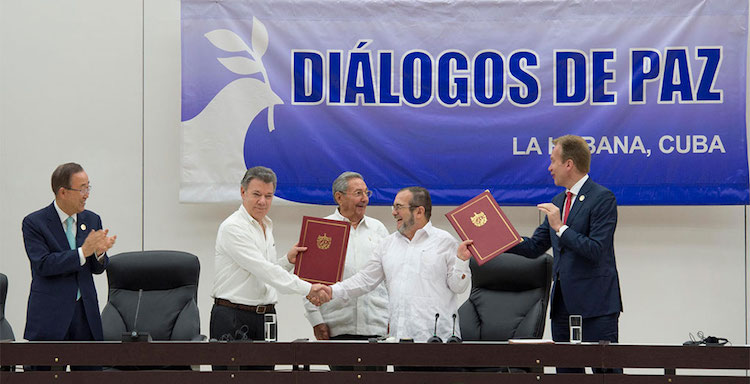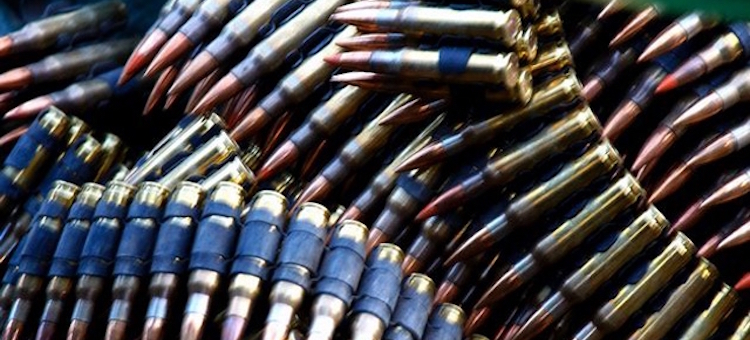


Children and Women Main Human Trafficking Targets, Says UN
By Jaya Ramachandran
BERLIN | VIENNA (IDN) – Almost a third of all humans traded around the world for the purpose of sexual slavery, forced labour, or commercial sexual exploitation are children, and women and girls comprise 71 per cent of the victims of “human trafficking”, according to a new report by the United Nations Office on Drugs and Crime (UNODC).
The 2016 UNODC Global Report on Trafficking in Persons is the third of its kind mandated by the General Assembly through the 2010 United Nations Global Plan of Action to Combat Trafficking in Persons.…

Security Council Resolves to Halt Human Trafficking
By Santo D Banerjee
NEW YORK | VIENNA (IDN) – Human trafficking is a global problem particularly affecting people fleeing armed conflict, including women, children, internally displaced persons and refugees who are forced into modern slavery that fetches its perpetrators some $150 billion.
The UN Security Council is determined to put an end to this serious crime and violation of human rights, and has passed a resolution, which the Executive Director of the Vienna-based United Nations Office on Drugs and Crime (UNODC), Yury Fedotov, describes as “historic”.…
Laos Adds SDG18 to Handle Unexploded American Bombs
By Kalinga Seneviratne
VIENTIANE (IDN) – U.S. President Barack Obama’s early September visit to Laos helped to focus attention on one of the most horrendous war crimes in history, the bombing of the small landlocked Southeast Asian country during the Indochina War in the 1960s and 1970s, and its massive human and development costs.
The Laotians made use of the visit of both Obama and UN Secretary General Ban Ki-Moon for the ASEAN and East Asia Summits to launch their own Sustainable Development Goal 18 to reduce the impact of unexploded ordnance (UXO) on development and economic activities. (P29) CHINESE TEXT VERSION PDF | HINDI | INDONESIAN | JAPANESE TEXT VERSION PDF | SPANISH | TAGALOG | THAI
…

Behind Turkey’s Failed Coup and its Puzzling Aftermath
Analysis by Jacques N. Couvas
ANKARA (IDN) – The fourth and latest military coup in the history of the Turkish Republic ended at 8:02 p.m. on Saturday, July 16, less than 24 hours after it had begun. It was bloody. And it failed.
Hardly a week later, the state of emergency has been declared, tens of thousands of state and military personnel have been dismissed and three million servants recalled from holidays.
As the Turkish people recover from the psychological shock following the events, questions and all kinds of theories fill the discussions in the squares, cafés and social media. They are wondering “why” and “why now”? And then, “what is next”? All this on the assumption that everyone agrees with the answer to the question “who did it”?

Recalling Mandela’s Contribution to Culture of Peace
By Lisa Vives
NEW YORK (IDN | GIN) – On July 18, the international community will observe the ‘Nelson Mandela International Day’ – formalised by the UN General Assembly in November 2009 – to recall the former South African President’s contribution to the culture of peace and freedom.
For 67 years Nelson Mandela, who was born in a village named Mvezo of South Africa in 1918, devoted his life to the service of humanity – as a human rights lawyer, a prisoner of conscience, an international peacemaker and the first democratically elected president of a free South Africa, recalls the UN.
He was the first black South African president who reigned from 1994 to 1999. He was awarded the Nobel Peace Prize in 1993 for his contribution to make South Africa free and bringing peace in and around Africa.

Women Played a Crucial Role in Colombia Ceasefire Accord
By J Nastranis
NEW YORK (IDN) – UN Women has joined Secretary-General Ban Ki-moon in welcoming the “historic” agreement signed in Cuba’s capital Havana between the government of Colombia and the Revolutionary Armed Forces of Colombia-People’s Army (FARC-EP), after 52 years of armed conflict and nearly four years of peace negotiations.
The June 23 accord “marks a definite step on the road to peace”, UN Women Executive Director Phumzile Mlambo-Ngcuka said. “It is an occasion to be hopeful for the future and to strengthen our resolve to support this exemplary peace process,” she added in a statement on June 24.
UN Women, the United Nations entity for gender equality and the empowerment of women, assured that it stands in solidarity with the Colombian women who had become an unstoppable force for peace despite suffering so much in the protracted war.…
Islamophobia – Panel Discussion at the UN Geneva
At the UN in Geneva, the Geneva Center for Human Rights Advancement and Global Dialogue with the support of the Permanent Mission of the Islamic Republic of Pakistan, arranged this panel discussion for the fight against the scourge of so called “Islamophobia”. Participants included:…

New Study Faults Lack of Transparency in Arms Trade
By Rodney Reynolds
NEW YORK (IDN) – A new study on the international trade in small arms and light weapons confirms the long standing traditional secrecy in the global market place.
Released June 6 – to coincide with the Sixth Biennial Meeting on the Implementation of the Programme of Action to Eradicate the Illicit Trade in Small Arms – the study pointedly says “export authorizations remain the most opaque dimension of small arms reporting”.
The 2016 Transparency Barometer, which evaluated the reporting practices of 49 countries, identified only three countries – Germany, the UK and the Netherlands – as “the most transparent major small arms exporters”.
The Netherlands was among the top three, due to improvements in reporting through its monthly arms export reports, which include new information on re-exports.…

Democracy Dream is Fading Away in Former Yugoslavia
Analysis by Vesna Peric Zimonjic
BELGRADE (IDN) – The right to vote for any party they like has existed in former Yugoslavia for more than a quarter of a century, but genuine democracy remains a dream for many as the region remains split along ethnic lines and lags in sustainable economic development. In fact, that dream seems to be vanishing.
Recent studies in Serbia have shown that only one-third of its 7,2 million citizens believe democracy is better than non-democratic rule.
“Unfortunately, introduction of democracy in 1990 is closely related, among ordinary people, to disintegration of former Yugoslavia, international sanctions that crippled Serbia and an unfulfilled promise of better life,” says Djordje Vukovic, head of prominent non-governmental (NGO) organisation CeSID that carried the survey titled “Democracy still does (not) live here”.
The first multiparty elections all over former Yugoslavia were held in 1990, with parties calling for independence winning in Slovenia, Croatia and Bosnia-Herzegovina.…












